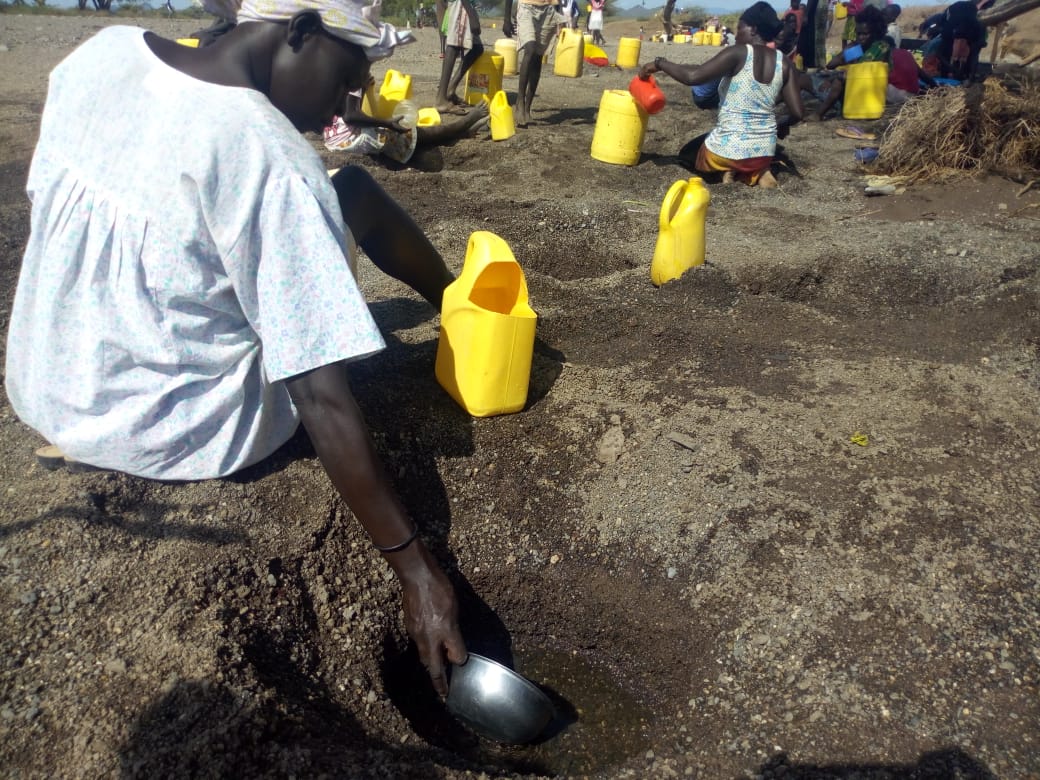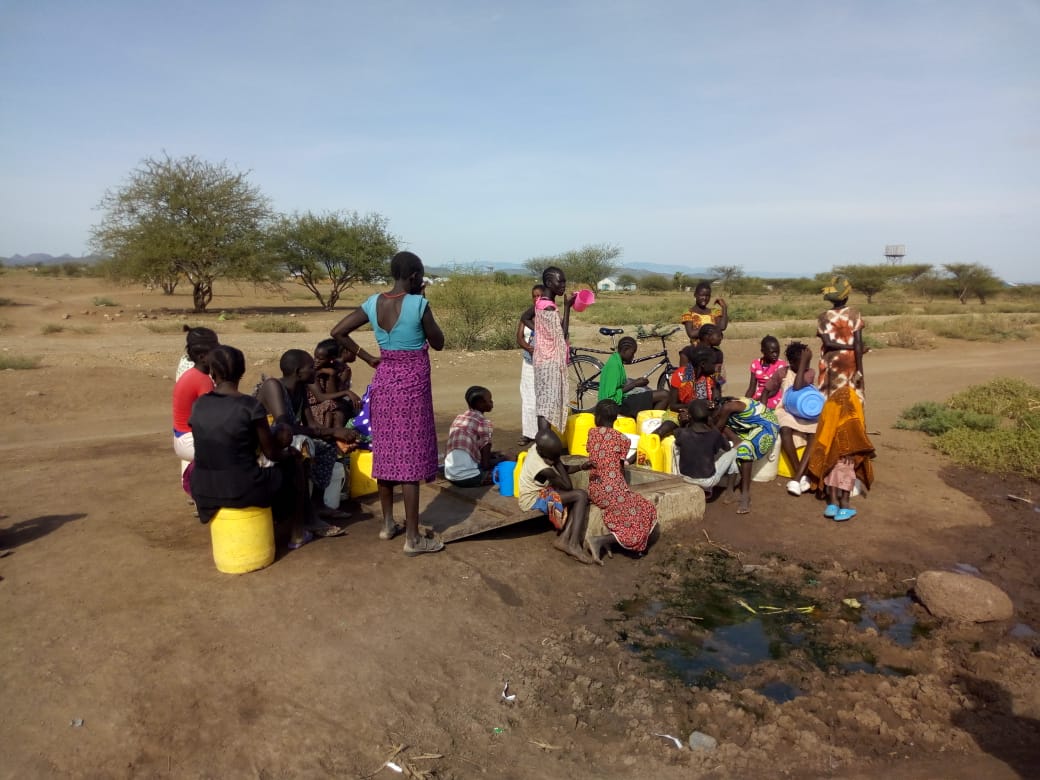By Akuna Denza – KANERE Staff Writer, February 2021
Kalobeyei residents face a shortage of water as women turn to alternative sources to alleviate/mitigate the water concern.

The Lagga, a seasonal stream, is the alternative source upon which people rely when the community water taps run dry.
Water is the most fundamental basic need for human life. But the risks of water shortages are even more dire in the midst of a pandemic. The World Health Organization (WHO) declared that sanitation is compulsory to fight the spread of the corona virus, but water shortages in Kalobeyei has left refugees disarmed in the fight against COVID-19.
“It’s been three days now without water, the water taps are not running, that is why I come here to fetch water” Ajulu said as she fetched water from a hand-dug hole in a dry riverbed. “My greatest fear is the corona virus, we were told to wash our hands every 20 minutes and you can only imagine what would happen if I just stayed at home without fetching from here” she said as she filled upher 20-liter jerrican with cloudy water.
Beside Ajulu, other residents also drew water from the holes, while others washed their clothes. As I walked down the stream, I met Mary Kulang, a middle-aged woman and a mother of four from Village 3. She echoed the same message when I asked her what she was going to do with the water. According to Mary, this water crisis is not only affecting one village, it is the problem of the entire Kalobeyei settlement. “It’s not only in my neighborhood; even the other villages do not have water” she said.
“I am fetching water from Lagga for my children to wash their hands regularly so that they remain protected from the coronavirus” she explained. “I finished all the water I had at home, as water has not come for three days now” Mary added. “No one knows if it will come today or tomorrow, we women are suffering a lot” she concluded.

Kalobeyei was established as a refugee settlement over four years ago, and it is located just a 25-minute drive from Kakuma town on the way to Lokichiogio. It was opened in 2016 to accommodate the new arrivals displaced by a renewed war in South Sudan, as well as minority refugees relocated from the Dadaab camp in Garissa County. The Kalobeyei settlement has a population of between 45,000 and 50,000 refugees, the majority of whom are South Sudanese.
The Kalobeyei settlement was designed to economically integrate refugees and host communities by sharing resources and services. However, during this difficult time, the COVID-19 pandemic adds more burdens on refugee communities who live in precarious conditions because the settlement still does not have enough resources to provide for the residents. Ever since the refugees settled in Kalobeyei in 2016, water hasbeen a recurring problem that the community members have been facing.
Inside the Kalobeyei Neighborhoods in Village 2, I met with a group of women crowded around the road near the water tank’s main gate bolt, carrying their jerricans. One of them introduced herself as Angelina Nyagoa and described how she spent three days without water. “I spent three days without taking a bath” she stated. Angelina noted that while this was not the first time, she experienced this kind of a situation, this one was the worst because of the coronavirus pandemic. “During a time like this, water is the most important thing, it is even more crucial than food, as we constantly need to wash our hands” she said.
The community members are asking themselves: “What will happen if this water crisis extends for more days?” Angelina urged the UNHCR and its partners to do more and provide water during this COVID-19 pandemic. She stated: “Water is life and we need it at a time like this, UNHCR and other agencies must work together to provide immediate life-saving assistance.”
As I continued going round the village, I paid a visit to the village leader to hear about how the village was coping with the water crisis. In Village 2 Neighborhood 13, I met with Odhieng Oman, a village leader and he said he had made a phone call to the person in charge of water supply at Norwegian Refugee Council (NRC)office in Kakuma. “made a phone call to the officer in charge of water at Norwegian Refugee Council in Kakuma about the water crisis and they will come to see the problem” he said. “Since yesterday we the leaders have not rested on this water problem; we made phone calls to UNHCR Kakuma and other leaders also sent messages on WhatsApp to UNHCR” he added.
I went further and asked Odhiengif the stream water, which had become a source of water for community members during the last three days, is clean to be used for drinking. “No, the water that the community members are fetching from the stream is not clean for human consumption. It will cause diseases like cholera since some of the community members use streams for defecation” he affirmed.
I also talked to Stella, a neighborhood leader and she echoed the same voice. “We have talked to the Norwegian Refugee Council (NRC), an agency responsible for water and sanitations and they told us that they are coming to see the problem that is preventing water from reaching Kalobeyei. We haven’t rested since yesterday” Stella said.
